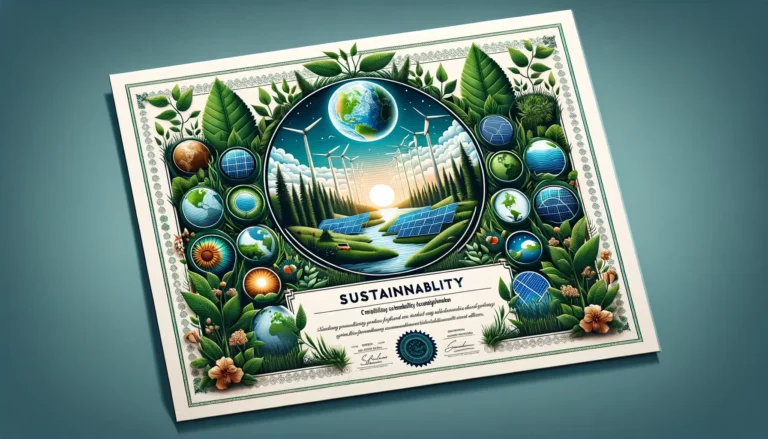In an era where environmental concerns are at the forefront of global discussions, businesses worldwide are increasingly realizing the importance of integrating sustainability into their operations. Sustainability leadership certifications have emerged as a crucial tool in guiding and validating eco-conscious business practices. These certifications not only demonstrate a company’s commitment to environmental responsibility but also provide tangible benefits such as cost savings, enhanced brand reputation, and access to new markets.
What are Sustainability Leadership Certifications?
Sustainability leadership certifications are credentials awarded to businesses and organizations that demonstrate a commitment to environmental stewardship, social responsibility, and economic viability. These certifications are typically awarded by independent third-party organizations that assess a company’s sustainability performance against established criteria and standards. While specific requirements may vary depending on the certification body and industry, common areas of evaluation include energy efficiency, waste reduction, carbon footprint, supply chain transparency, and corporate governance.
Guiding Eco-Conscious Business Practices
One of the primary functions of sustainability leadership certifications is to guide businesses in adopting and implementing eco-conscious practices. By providing clear benchmarks and guidelines, these certifications help companies set achievable sustainability goals and track their progress over time. For example, certifications such as LEED (Leadership in Energy and Environmental Design) for buildings provide specific criteria for sustainable construction and operation, encouraging developers to design and manage their properties in an environmentally responsible manner.
Moreover, sustainability certifications often offer access to resources, tools, and best practices that can help businesses identify opportunities for improvement and implement effective sustainability initiatives. Whether it’s through training programs, technical assistance, or networking opportunities, certified businesses can leverage these resources to enhance their sustainability performance and stay ahead of evolving environmental regulations and market trends.
Building Trust and Credibility
In today’s socially and environmentally conscious marketplace, consumers, investors, and other stakeholders are increasingly scrutinizing businesses’ sustainability practices. Sustainability leadership certifications serve as a credible and transparent way for companies to communicate their commitment to environmental responsibility. By earning certifications from reputable organizations, businesses can build trust with their stakeholders, differentiate themselves from competitors, and attract environmentally conscious consumers and investors.
Furthermore, sustainability certifications can enhance a company’s reputation and brand value by signaling its alignment with broader societal values and priorities. Studies have shown that consumers are willing to pay a premium for products and services from companies with strong environmental credentials, making sustainability leadership certifications not only a moral imperative but also a strategic business decision.
Driving Innovation and Competitiveness
Sustainability leadership certifications also play a crucial role in driving innovation and competitiveness within industries. By setting clear sustainability standards and expectations, these certifications incentivize companies to develop and adopt innovative technologies, processes, and business models that minimize environmental impact while maximizing efficiency and profitability.
For example, certifications such as B Corp certification require companies to meet rigorous social and environmental performance standards, encouraging them to explore new ways of doing business that prioritize people and planet alongside profit. As a result, certified companies often find themselves at the forefront of sustainability innovation, gaining a competitive edge in their respective markets and positioning themselves for long-term success in a rapidly changing world.
In conclusion, sustainability leadership certifications play a vital role in guiding eco-conscious business practices and driving positive environmental, social, and economic outcomes. By providing clear benchmarks, resources, and incentives, these certifications empower companies to embrace sustainability as a core business principle and contribute to a more sustainable and resilient future for all. As businesses continue to face mounting pressure to address climate change and other sustainability challenges, certifications will undoubtedly play an increasingly important role in shaping the corporate landscape and driving meaningful progress towards a more sustainable world.

